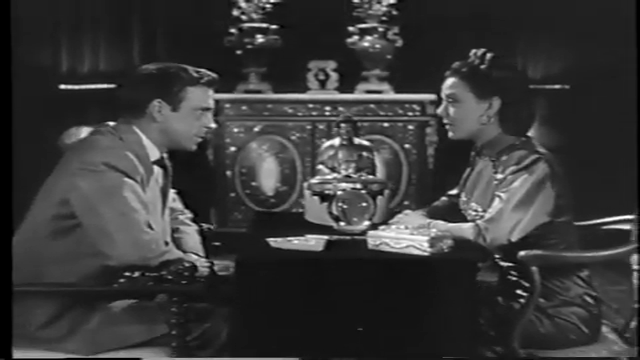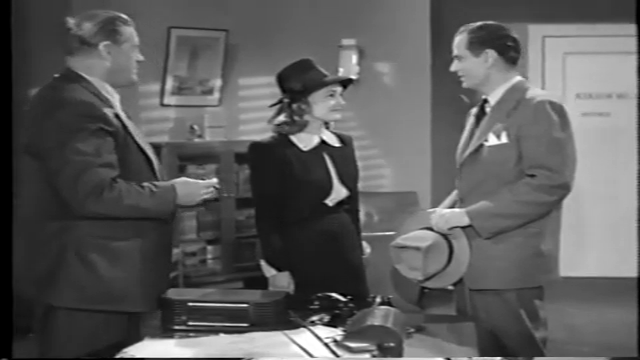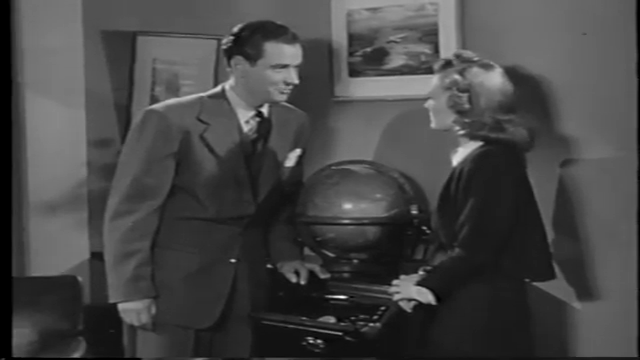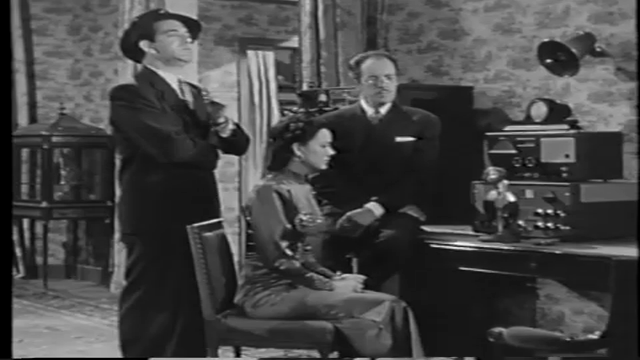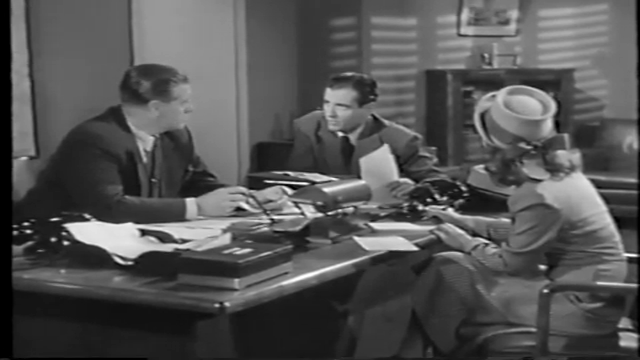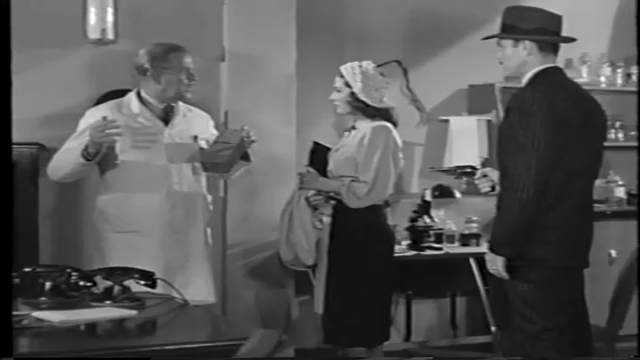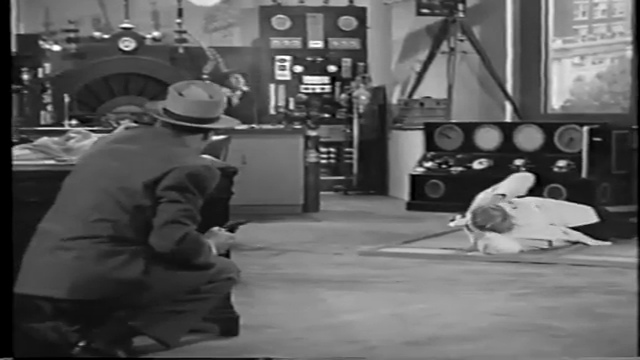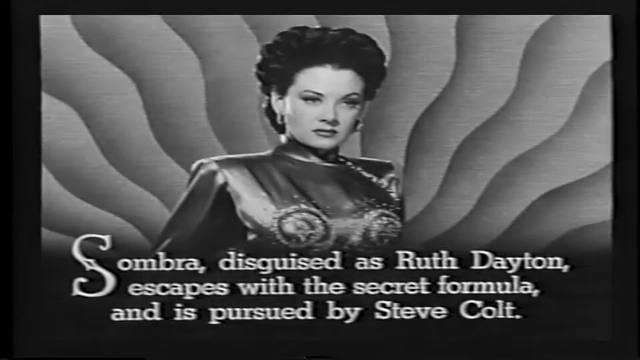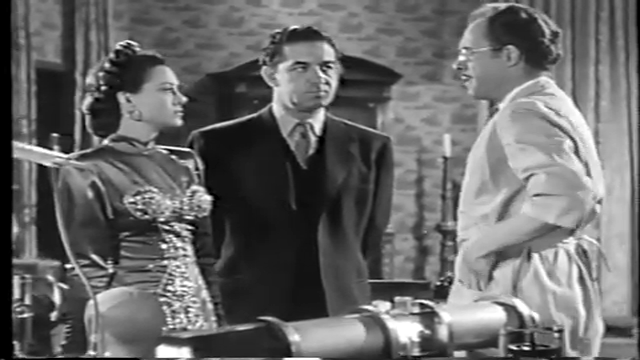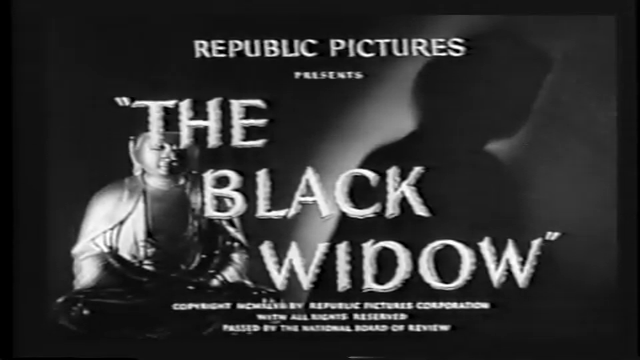
#449 – The Black Widow (1947)
The Black Widow (1947)
Film review #449
Directors: Spencer Gordon Bennet, Fred C. Brannon
SYNOPSIS: A series of murders involving poison from a venomous spider leads the editor of the Daily Clarion newspaper to hire amateur criminologist Steve Colt to investigate. He is joined by Joyce Winters to investigate the work of the criminal known only as the “black widow,” who is attempting to steal a prototype rocket project for undoubtedly evil ends…
THOUGHTS/ANALYSIS: The Black Widow is a 1947 serial comprised of thirteen chapters. In the opening, we see a man fall victim to a venomous spider bite, orchestrated by Sombra, a foreign agent disguised as a fortune teller. Adding this man to her killing spree, the Daily Clarion newspaper aims to uncover the secrets of this killing spree by hiring amateur criminologist Steve Colt to unravel the mystery. The story is a very familiar setup, with the basic premise being the protagonist’s having to foil the antagonist’s schemes through car chases, fistfights and the like. It all feels very familiar, and the plot never really progresses beyond this back and forth. A major part of the plot revolves around Sombra trying to get a hold of a prototype rocket project, but it doesn’t really go anywhere or add anything to the story. While almost all of the serials follow the same format and low budget production, the best ones are able to provide something that is reasonably unique to help drive the story and set itself apart from other serials, but The Black Widow doesn’t really have anything; no, an unconvincing plastic spider coming out of a chair to poison it’s victims once or twice doesn’t count.
The characters don’t really help give the serial an original edge. Steve Colt as an “amateur criminologist” is a role that a lot of the serial leads have. It’s a wonder how so many “amateur” criminologists are able to bring down crime bosses with little to no help from the police. Joyce Winters provides the “lead” female role, which is to say she has a small part to play in the serial other than being kidnapped (although she does that too), and it’s good to see more than one female character playing a role in the serial. Sombra as the villain is cold and ruthless, but spends a lot of time just giving orders. Her ability to put on masks and disguise herself as other people seems to be otherworldly, but lacks explanation and justification. Carol Forman, the actress who played Sombra, often played the role of female serial villain, and played a similar character in the 1948 Superman serial, where she played the criminal mastermind the “Spider Lady.” The rest of the character don’t make much of an impact on viewers, and are quickly forgettable. Sombra’s Father, King Hitomu, appears through the use of a device that apparently transports him across the world from presumably east Asia somewhere (although the characters are white they are obviously made up to “look” Japanese, as a lot of serial villains were in response to their role against the U.S. in WWII). Having a transportation device that can take you across half the world instantaneously should probably be more of a deal than the serial makes it out, using it so Hitomu can appear, give his orders, and then disappear again. The plot of the experimental rocket weapon just seems to pale in comparison to such a device. His motivation also just seems to be limited to “conquering the world,” which doesn’t really say anything about his character.
Released in 1947, the serial was released after the peak of the format’s popularity, and the continually recycled tropes had mostly run their course as Hollywood was turning away from low budget serials to feature films that could be more experimental and bold in the post-war boom. That said, with directors Spencer Gordon Bennet and Fred C. Brannon attached; two of the veteran serial directors, the action scenes and camerawork are decently co-ordinated. The acting is often pretty rough, and the dialogue unnatural, as these serial s often try and recap past events through dialogue for people that have missed chapters. There’s some inventive setups and scenery, with hidden switches, and imaginative devices that the villains use to implement their schemes. Overall, The Black Widow benefits from the experience of it’s production staff, but fails to come up with an original story or interesting characters to justify going through all thirteen chapters.


